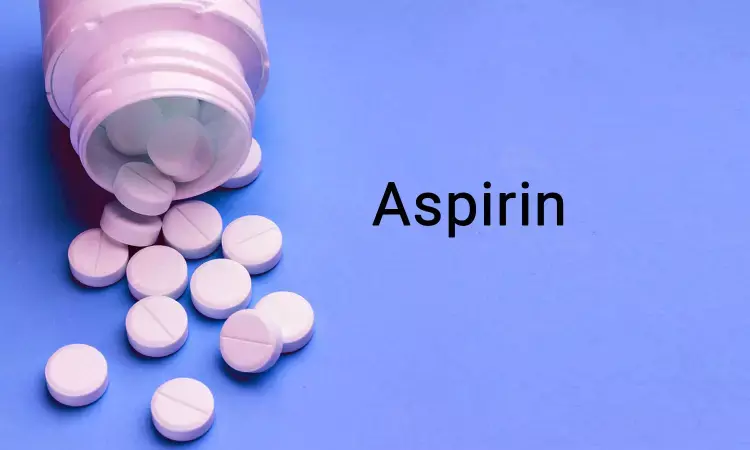- Home
- Medical news & Guidelines
- Anesthesiology
- Cardiology and CTVS
- Critical Care
- Dentistry
- Dermatology
- Diabetes and Endocrinology
- ENT
- Gastroenterology
- Medicine
- Nephrology
- Neurology
- Obstretics-Gynaecology
- Oncology
- Ophthalmology
- Orthopaedics
- Pediatrics-Neonatology
- Psychiatry
- Pulmonology
- Radiology
- Surgery
- Urology
- Laboratory Medicine
- Diet
- Nursing
- Paramedical
- Physiotherapy
- Health news
- Fact Check
- Bone Health Fact Check
- Brain Health Fact Check
- Cancer Related Fact Check
- Child Care Fact Check
- Dental and oral health fact check
- Diabetes and metabolic health fact check
- Diet and Nutrition Fact Check
- Eye and ENT Care Fact Check
- Fitness fact check
- Gut health fact check
- Heart health fact check
- Kidney health fact check
- Medical education fact check
- Men's health fact check
- Respiratory fact check
- Skin and hair care fact check
- Vaccine and Immunization fact check
- Women's health fact check
- AYUSH
- State News
- Andaman and Nicobar Islands
- Andhra Pradesh
- Arunachal Pradesh
- Assam
- Bihar
- Chandigarh
- Chattisgarh
- Dadra and Nagar Haveli
- Daman and Diu
- Delhi
- Goa
- Gujarat
- Haryana
- Himachal Pradesh
- Jammu & Kashmir
- Jharkhand
- Karnataka
- Kerala
- Ladakh
- Lakshadweep
- Madhya Pradesh
- Maharashtra
- Manipur
- Meghalaya
- Mizoram
- Nagaland
- Odisha
- Puducherry
- Punjab
- Rajasthan
- Sikkim
- Tamil Nadu
- Telangana
- Tripura
- Uttar Pradesh
- Uttrakhand
- West Bengal
- Medical Education
- Industry
Aspirin use cuts mortality in patients hospitalized with COVID-19: Study

USA: In patients hospitalized with COVID-19 infection, aspirin use was tied to a protective effect demonstrating decreased inpatient mortality, a recent study shows This could be due to the anti-thrombotic and anti-inflammatory of aspirin, or acetylsalicylic acid (ASA). The study appears in the American Heart Journal Plus: Cardiology Research and Practice.
Thromboembolism is a leading cause of death in patients with COVID-19 infection. Studies examining aspirin's effects on mortality relating to this phenomenon have yielded conflicting results with varying degrees and certainties of evidence. Waleed Tallat Kayani, Section of Cardiology, Baylor College of Medicine, Houston, TX, United States of America, and colleagues, therefore, conducted the study with the objective to report the association between low-dose aspirin and a reduced risk of in-hospital mortality in patients with COVID-19.
For this purpose, the researchers performed an aggregate data meta-analysis of fourteen studies encompassing 164,539 COVID-19 patients, and found the following:
- Based on six studies that measured HR, the association of ASA use with reduced mortality was statistically significant (HR 0.56).
- Based on eight studies that measured RR, the association of ASA use with reduced mortality was also statistically significant (RR 0.90).
- The pooled effect size showed reduced mortality was both statistically and clinically significant (0.71).
- Heterogeneity testing for inpatient versus prophylactic ASA use showed no difference.
- Heterogeneity testing showed no difference between studies included or not included in prior meta-analyses.
- ASA use was relatively homogeneous, with most studies reporting ASA doses between 80 and 150 mg. The duration of ASA use was unspecified in several studies, ranging from a minimum of 7 days to several months.
- ASA users had higher rates of hypertension, diabetes mellitus, coronary artery disease, and renal disease.
"Further RCTs can help elucidate the benefits and risks of ASA use in conjunction with anticoagulant and antiplatelet medications for COVID-19 patients," the researchers wrote. "Additional data can also explore the optimal length and time to ASA initiation for these patients."
Reference:
The study titled, "Aspirin use is associated with decreased inpatient mortality in patients with COVID-19: A meta-analysis," was published in American Heart Journal Plus: Cardiology Research and Practice.
DOI: https://doi.org/10.1016/j.ahjo.2022.100191
Dr Kamal Kant Kohli-MBBS, DTCD- a chest specialist with more than 30 years of practice and a flair for writing clinical articles, Dr Kamal Kant Kohli joined Medical Dialogues as a Chief Editor of Medical News. Besides writing articles, as an editor, he proofreads and verifies all the medical content published on Medical Dialogues including those coming from journals, studies,medical conferences,guidelines etc. Email: drkohli@medicaldialogues.in. Contact no. 011-43720751


